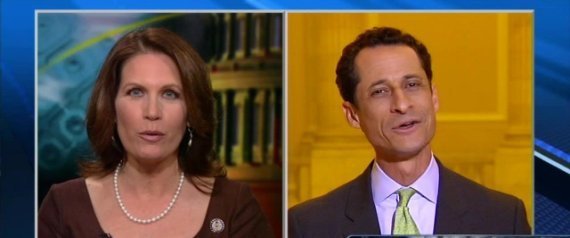RAMIT PLUSHNICK-MASTI 03/11/11 07:11 PM 
HOUSTON — She can talk, even saying short sentences. With some help, she can walk. She also knows that she was shot.
But for doctors, some of the greatest moments in treating Rep. Gabrielle Giffords occur when her true personality shines through and she shares big grins and excitement over milestones in her recovery from a devastating gunshot wound to the head.
"That's Gabby. It's a constant, wonderful thing," said Dr. Dong Kim, a neuroscientist.
Doctors provided the new details about Giffords' condition Friday, their first official update since she began intensive rehabilitation in Houston on Jan. 26. Until now, tidbits of information came from friends and family, but the doctors, those with the understanding and knowledge of what each setback and step forward means for long-term recovery, remained tight-lipped.
Kim and two other members of her medical team described several breakthroughs in Giffords' recovery from her brain injury, saying she has made "leaps and bounds."
He breathing tube was removed last week, a "fist-pump" moment, said Dr. Imoigele Aisiku, a neurosurgeon. She also can express desires, such as "I'm tired. I want to go to bed."
Giffords can't remember the shooting, but her husband, astronaut Mark Kelly, has told her about the incident, though it remains unclear whether she knows six people were killed and 12 others injured at the Jan. 8 political event outside a supermarket in Tucson, Ariz.
The demeanor of the news conference was largely subdued – until the doctors were asked whether Giffords' personality was starting to surface. Then, the three men grinned and nodded simultaneously. They snickered with affection.
"She has a personality that's already showing through," Kim said. "She's very upbeat, focused on getting better. She hasn't shown us depression, and she's just been very forward-looking and even with the speech she's not showing much frustration."
"I feel like I know her very well. She's able to express her personality, she's able to express what she wants and doesn't want," said Dr. Gerard Francisco, the head of Giffords medical team.
That Giffords is showing emotion is especially encouraging because the bullet pierced the front of her head, an area that controls personality. Some people shot in the front may recover their ability to speak but never truly show emotion again, said Dr. Steve Williams, chairman of rehabilitative medicine at Boston University.
"So the fact that she actually is able to show emotion is good because many people have very flat personalities," after being shot in the front of the head, Williams said.
While doctors were enthusiastic about Giffords' progress and Francisco said it was better than they had expected, they refused to commit to her being well enough to travel to Cape Canaveral, Fla., to watch her husband rocket into space as the commander of the Endeavour space shuttle when it launches on its last mission next month.
"We're going to be assessing this over the next few weeks, but we think there's a good possibility," Kim said.
Dr. Richard Riggs, chair of physical medicine and rehabilitation at Cedars-Sinai Medical Center in Los Angeles, said Giffords' recovery is "spectacular" relative to where she started – unable to get out of bed or take care of her most basic needs – and considering the almost impossible odds she overcame when she survived being shot in the head.
Still, Riggs said he was surprised the doctors publicly stated she wouldn't likely have memory loss problems in the future but refused to commit to her traveling to Florida.
"I'm a little perplexed by the positivity on one hand and the reservations on the other," Riggs said.
Traveling, however, is a multifaceted event that includes many complexities, other doctors said.
Williams noted that while most patients have a "social outing," it is usually to a restaurant not far from the hospital. Even that, he said, can be stressful for a patient who may have scarring or disfigurement.
Giffords had a piece of her skull removed shortly after the shooting to allow room for brain swelling, and has been wearing a helmet adorned with an Arizona state flag. Doctors said they expect to reattach the skull in May, but she would be able to travel before that happens.
Williams agreed she could travel before that surgery, and noted therapists would almost definitely accompany her to Florida, as they would any other patient.
"Going to a launch could be a community outing, but it would be a big one," he said.
Friends and family say they are planning for her to attend.
The news of her progress has been welcomed in her hometown of Tucson, where her supporters held a benefit concert on Thursday night to raise money for a fund created by a survivor of the attack. Rockers Alice Cooper and Jackson Browne were among the headline acts.
The suspect, 22-year-old Jared Loughner, has pleaded not guilty in federal court. Authorities described him as a mentally unstable college dropout who became obsessed with carrying out violence against Giffords.
He appeared in court this week in Tucson at a hearing attended by at least three survivors of the attack.








